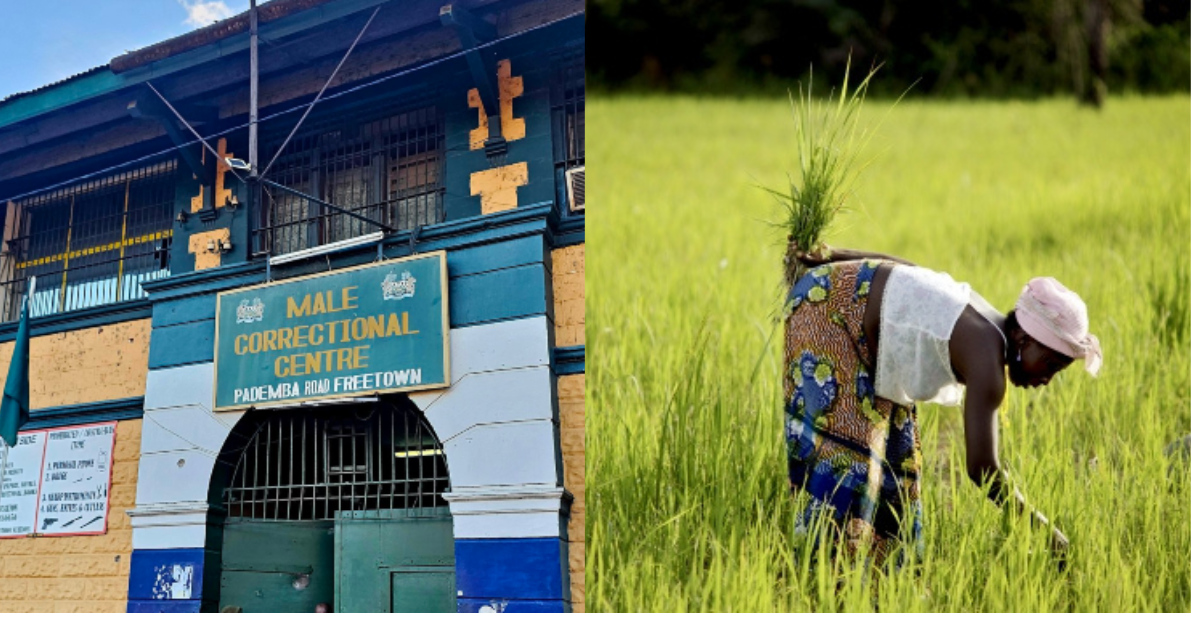The Sierra Leone Correctional Service (SLCS) has announced a strategic shift towards large-scale farming to address the rising costs of inmate welfare and contribute to national food security.
This initiative was unveiled during the 2025 bilateral budget discussion held at the New Brookfields Hotel, Freetown.
Susan Koker, Director of Support Services for SLCS, highlighted the financial burden of inmate welfare, with annual spending ranging from 100 to 130 million New Leones. She revealed that 80% of the funds allocated to SLCS were spent on feeding inmates across the country. In a bid to reduce these costs, SLCS has developed a project proposal for large-scale mechanized farming, aimed at achieving food self-sufficiency for inmates and supporting the “Feed Salone” initiative.
“We have identified several agricultural farm lands for these activities, but more support is needed from the government to acquire additional lands,” Koker stated. She emphasized the department’s capacity to mobilize labor, comprising both inmates and correctional staff, to work on these farms under an earning scheme. Additionally, SLCS has a service level agreement with the Ministry of Agriculture for large-scale farming and the training of inmates in agriculture.
Koker also outlined the department’s previous and ongoing efforts in revenue generation through various small-scale industries. Despite setbacks, such as the 2020 jailbreak that resulted in the destruction of woodwork equipment and facilities, SLCS continues to produce furniture, soap, bread, and locally made products. She disclosed plans to expand these activities and has developed project proposals seeking funding to purchase equipment for bread baking, soap making, tailoring, carpentry, and other trades.
“Our aim is to rehabilitate and reintegrate inmates into society while generating revenue for the department and the government,” Koker added. Revenue from the sale of inmate-produced goods will be deposited into the government’s consolidated fund, with a portion allocated to the inmates under the earning scheme.
Despite these ambitious plans, Koker highlighted significant challenges facing the SLCS, including severe overcrowding at correctional centers in Bo, Makeni, Kenema, and Freetown, delays in fund disbursement, and the accumulation of payment arrears to suppliers. Additionally, she pointed to the lack of clear operational policies, a low staff-to-inmate ratio, insufficient vehicles, inadequate accommodation for correctional officers, and high staff attrition due to poor working conditions.
To address overcrowding, Koker mentioned ongoing collaborations with several institutions, including the deployment of technical support teams from the Republic of Sierra Leone Armed Forces (RSLAF) and the Sierra Leone Police (SLP). She also noted the construction of additional blocks at correctional facilities in Moyamba, Waterloo, Karene, and Falaba.
The SLCS’s initiatives reflect a broader effort to reform the correctional system in Sierra Leone, focusing on self-sufficiency, rehabilitation, and reintegration of inmates, while also easing the financial burden on the government.












Good idea madam koker no waste inmates let them work